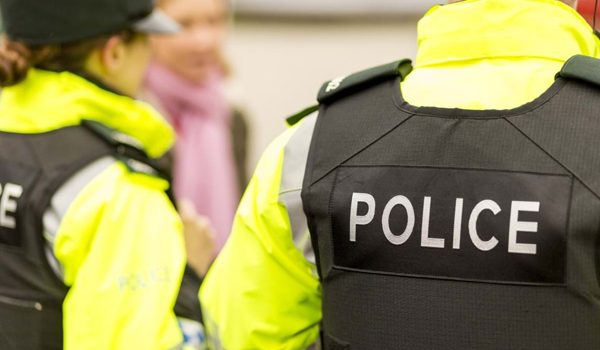Review examines human rights of children and young people during police contact
The Northern Ireland Policing Board (NIPB) has published a new review examining the rights of children and young people who come into contact with the police.
This includes issues such as the use of stop and search powers, treatment in custody and the use of spit and bite guards.
The report – Human Rights Review: Children and Young People and Policing – also explores where children and young people are likely to be victims of crime, and looks at current issues with child sexual exploitation, child criminal exploitation, paramilitarism and modern slavery.
It also highlights the current issues with privacy and surveillance and some of the issues experienced by young people in reporting crime to the police.
Conducted by the NIPB’s independent human rights adviser John Wadham, the review makes 16 recommendations for change and improvement across six key areas – use of force; use of police powers; children and young people as victims; privacy and surveillance; human trafficking and modern slavery; and children and young people in care.
NIPB chair Mukesh Sharma said: “Commissioned to help improve how policing engages with and treats young people, this report identifies ways to enable the Police Service of Northern Ireland (PSNI) to deliver a better service to children and young people, and to be more effective and more child focused.
“The review also highlights areas where our children and young people are vulnerable and at most risk from becoming victims of crime and criminality, and the findings show there is work to do to in engaging and educating children and young people so that they will feel more confident in reporting incidents to the PSNI.
“The findings in the report also point to the importance of neighbourhood policing in building trust and relationships with children and young people. These officers are much more aware of the issues in the local area and those affecting the young people.
“In the current financial climate, this report provides further evidence of the need to invest and maintain the presence of sufficient neighbourhood officers.”
PSNI Assistant Chief Constable Bobby Singleton said: “As law enforcement professionals, we are deeply committed to ensuring the safety, wellbeing, and fundamental rights of all individuals, especially children and young people. Protecting their rights is not just a moral obligation but a legal imperative. Children and young people are among the most vulnerable members of our society, and it is our duty to safeguard them from harm, exploitation and neglect.
“We recognise that how we engage with children and young people is critical to achieving their confidence and trust in policing and to fostering positive relationships.
“Every child has the right to grow up in a safe and supportive environment where they can thrive, learn, and reach their full potential. This includes the protection from all potential sources of harm and abuse. As a Police Service we work together with criminal justice partners, statutory and voluntary organisations to create an environment where every child and young person’s rights are respected and upheld whether that be as a victim of crime or alleged offender.
“The safety of our children and young people is paramount and our commitment extends beyond just reacting to crime; it involves proactive efforts to educate, support, and empower communities to protect them from issues such as child trafficking, online exploitation, domestic and child abuse. This report will assist us to further deliver the commitments which the Police Service has outlined in our Children and Young People Strategy.”
The NIPB has asked the PSNI to provide an interim report in six months, and within 12 months a full update report to the Board on the progress and outcomes in meeting all the recommendations made, alongside progress in implementing the PSNI Children and Young Person’s strategy.


